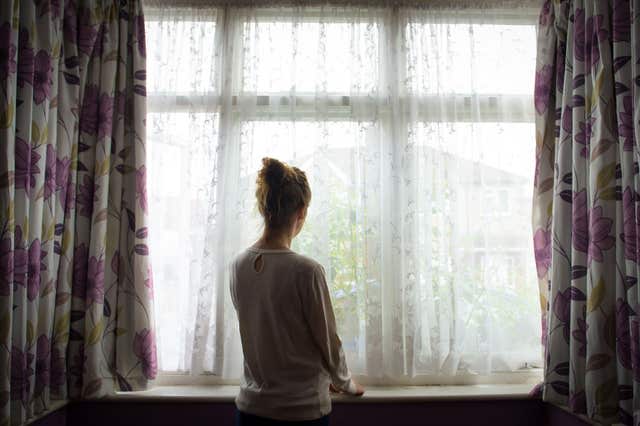Lack of victim support undermining efforts to stamp out slavery – report
Failure by police officers to properly support victims of modern slavery is undermining efforts to prosecute perpetrators, a recent investigation has found.
A report by three policing bodies in response to a complaint by survivors charity Hestia revealed that an inconsistent approach to victims undermines their trust and often jeopardises investigations.
In its “super complaint” Hestia accused police forces in England and Wales of failing to train non-specialist officers to recognise modern slavery, and also in their duty to report it to the Home Office.
Hestia alleged victims are often treated as either immigration offenders, or as criminals when they are forced to commit crimes by their exploiters, and that forces failed to adequately investigate cases.
The charity cited the case of an Afghan victim trafficked into an arranged marriage and then forced to work without pay in her husband’s factory.

At the police station, she was informed by the receptionist “this isn’t modern slavery”, a Hestia key worker said, while a male officer told her “Did you expect to come to the UK and be a kept woman?”
In another incident, a pregnant Nigerian woman who escaped sexual exploitation was asked why she had her own coat if she was truly a victim of slavery, and why she spoke English.
The joint investigation into the complaint was conducted by Her Majesty’s Inspectorate of Constabulary and Fire & Rescue Services (HMICFRS), the College of Policing and the Independent Office for Police Conduct (IOPC).
It found the response to modern slavery by police forces in England and Wales had improved in recent years, but that many victims are not made to feel safe and do not get proper support.
The “Hidden Victims” report said the fact victims feared they would either be prosecuted or handed to immigration authorities meant many refused to engage with the investigation process, meaning vital information was lost.
“This is a significant factor which helps explain why few cases of modern slavery are prosecuted, and offenders remain free to continue to exploit vulnerable people,” it said.
It found while there were ongoing failings, officers and police staff “generally had a good understanding” of how victims of slavery can be forced to commit crimes.
This was partly driven by a growing understanding of county lines offending, the report said.
There have also been a growing number of referrals to the Home Office under the National Referrals Mechanism – rising 52% from 6,985 to 10,619 between 2018 and 2019.
Around 43% of referrals related to children.
The report concluded that police responses to modern slavery was “an improving picture”, but that it was still necessary to develop a “coherent and consistent” response to victims of the crime.
“The ability to prosecute cases often depends heavily on the victim becoming a key witness for the prosecution,” it said.
“Until the police, working with other law enforcement and partner agencies, address the concerns about how to support victims and keep them engaged, prosecution rates for modern slavery will remain low.”
Her Majesty’s Inspector of Constabulary Wendy Williams said: “We thank Hestia for submitting this super-complaint, which has shone a light on where the police response to these appalling crimes has improved, and where more needs to be done.
“The experiences and needs of victims must be at the centre of this.”
IOPC director general Michael Lockwood said: “It is vital that victims of modern slavery and human trafficking feel safe and supported by the police and the criminal justice system as a whole.
“Those victims have already suffered at the hands of their traffickers and captors and should not be victimised again when they are seeking justice and their freedom.”
Dame Sara Thornton, the independent anti-slavery commissioner, and Dame Vera Baird QC, victims’ commissioner, said: “Unless victims receive the care they require at first point of contact with the criminal justice system, we’ve got no hope of victims supporting a case through court.”
The two commissioners said they were disappointed the report did not rely on direct evidence from victims about their experiences, describing it as a “missed opportunity”.
“We must incorporate the expertise of survivors and ensure that practices and policies reflect the needs and views of those they seek to serve,” they said.
National Police Chiefs’ Council lead for modern slavery, Chief Constable Shaun Sawyer, said: “The police service is committed to combating modern slavery which the inspectors recognised and rightly pointed out the considerable improvements to our response in recent years, however we know there is more to do.”
He added: “This crime cannot be tackled by arrests alone and we are working closer than ever before with the Crown Prosecution Service, Home Office, National Crime Agency and charities to make sure our response is as joined up as possible.
“We will take time to carefully consider the recommendations made by the inspectors.”
A Home Office spokeswoman said: “The UK has led the world in protecting the victims of modern slavery and we will continue to support those who have suffered intolerable abuse at the hands of criminals and traffickers so they can rebuild their lives.
“The police have made significant progress in responding to modern slavery since the inspection by HMICFRS in 2017, however, we recognise there is more to do and welcome the Inspectorate’s report following Hestia’s super-complaint.”


